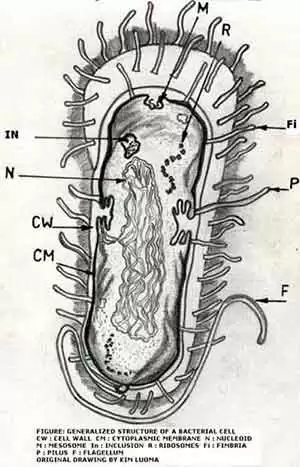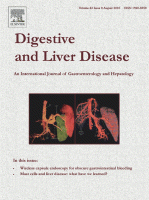
Celiac.com 02/02/2013 - The possible link between the makeup of gut bacteria and celiac has been a subject of past discussion in "More Evidence Links Gut Bacteria to Celiac Disease"[1] and other articles. Certain gut bacteria appear to enhance the immune response to gluten which may contribute to the onset of celiac disease. Vitamin D may reduce or eliminate this enhanced gluten response, and, therefore, vitamin D deficiency may be a significant factor contributing to the onset and development of celiac disease.[2] "Fecal transplantation", probiotics, and vitamin D have been advocated as possible therapy, treatment, and/or preventative measures against celiac disease. While vitamin D and probiotics may have potential as preventative measures against the onset of celiac disease early in life, the option of a fecal transplant provides the actual possibility of restoring tolerance to gluten or curing celiac disease later in life following long-term intestinal mucosal recovery on a gluten-free diet. In particular, fecal transplantation might make it possible to treat refractory celiac disease which does not respond to a gluten-free diet.
Fecal transplant therapy for gastrointestinal disorders was pioneered by the world reknown Australian gastroenterologist, Prof. Thomas J. Borody, M.D., and is now used most successfully for treatment of persistant C. difficile infections of the gastrointestinal tract. Fecal transplantation involves the actual transfer of screened and filtered fecal material from a healthy donor into the gut of a patient, previously treated with antibiotics to clear gut bacteria, replacing the patient's own gut bacteria with a healthy mix of donor gut bacteria. The fecal material may be administered either orally or anally, via tubes. Selecting and screening a healthy donor, usually a spouse or close relative, as well as the "disgust" factor have limited use of this therapy in past years, but its high anecdotal success rate for treating stubborn C. difficile cases is finally bringing fecal transplantation into the mainsteam of routine gastrointestinal practice. The first clinical trial of fecal transplant therapy involving 43 C. difficile patients compared to conventional vancomycin antibiotic therapy has just been published finding fecal transplantation 3 times more effective than vancomycin in resolving C. difficile infections.[3,4]
Celiac.com Sponsor (A12):
To date, there does not appear any record of an attempt or clinical trial to treat celiac disease via fecal transplant therapy. A big problem preventing any significant clinical trial of fecal transplantation for celiac disease is there is no way to "standardize" the healthy donor fecal material. The mix of bacteria from every donor is unique. Each donor must also undergo careful screening for harmful fecal pathogens. But, now, recent developments may make such a clinical trial feasible. A synthetic stool substitute was successfully used to clear C. difficile infections in 2 patients as part of a "proof-of-principle" study which may lead the way to eliminate the need for individual healthy feces donors and the need for screening tests. The synthetic stool consisted of a mix of 33 bacteria species isolated from the stool of one healthy donor and cultured under simulated intestinal conditions.[5,6] Such a standardized synthetic stool potentially administered orally in capsule form could make large scale fecal transplantation clinical trials possible. An "off-the-shelf" bacteria mixture specifically developed for the treatment of celiac disease might become a reality.
In the case of refractory celiac disease, a gluten-free diet does not stop the continued destruction of the intestinal mucosa. Research has not yet found the reason for refractory celiac disease, but "molecular mimicry" may be one possible cause. Celiac disease is an immune response to particular sequences of amino acids in gluten peptides called epitopes. In the absence of gluten, if there exist peptides from other sources with amino acid sequences matching or "mimicking" these gluten epitopes, the destructive immune response may continue to damage the mucosa. This is molecular mimicry in action. It is possible that some gut bacteria may express some of these epitopes on their surface, or, more likely, secrete peptides that contain these epitopes. These bacterial secretions might then coat the lining of the intestine sustaining the immune response. Secreted epitopes are the more likely cause of refractory celiac disease than bacteria surface epitopes because the immune system would eventually destroy the bacteria if bacteria surface epitopes were involved. But if the cause were the bacterial secretion epitopes, the bacteria itself would not be attacked and would continue to produce the secretions indefinitely perpetuating the mucosal damage. Fecal transplant therapy might cure refractory celiac disease by eliminating the gut bacteria producing the epitope mimicking secretions. How likely are such gut bacteria molecular mimics to exist? One study has investigated this for the case of multiple sclerosis and concluded there is a strong likelihood that "normally occurring gut bacterium" could produce epitopes that might cause MS through molecular mimicry.[7] One case of molcular mimicry between human peptides and wheat peptides has been found.[8]
In the case of normal celiac disease (non-refractory celiac disease) treatable by a gluten-free diet, after some length of time on a gluten-free diet when the antibodies to gluten epitopes have cleared and when the intestinal mucosa has sufficiently healed, it may be possible to reprogram the immune system to tolerate gluten through fecal transplantation, along with vitamin D supplementation, providing a new healthy gut bacteria mix. One problem, however, is that in many cases the damage to the intestinal mucosa from celiac disease does not entirely heal.[9,10] This means that a long-term or permanent state of increased intestinal permeablity or "leaky gut" exists after beginning a gluten-free diet. "Leaky-gut" is by no means a benign condition. It puts a strain on the liver's detoxification abilities having to continually deal with toxins readily passing through the "leaky" intestinal mucosa. The toxins come from gut bacteria as well as from drugs and environmental chemicals including household products and cosmetics. Inhaled environmental toxins can be ingested when mucus expelled from the lungs is swallowed. The overload on the liver and its inability to keep up with detoxification can lead to long-term debilitating medical conditions such as wide-spread chronic pain, muscle pain and weakness, neuropathies, fatigue, dry mouth, frequent urination, swelling, allergies, and even to other autoimmune disorders[11] due to fat soluble toxins accumulating in adipose tissue where they remain causing inflammation and raising havoc indefinitely. The result is an unfavorable pro-inflammatory immune system environment which could impede any chance of restoring gluten tolerance.
A promising treatment that could entirely heal the intestinal mucosa and "leaky gut" is a treatment based on a novel protein called R-spondin1. Prior to January 2009 a small San Francisco pharmaceutical company, Nuvelo, was developing an R-spondin1 therapy drug with the designation, NU206. NU206 had shown some great promise and success in lab studies. Dramatic mucosal healing was demonstrated in an experimental colitis model with mice.[12] Nuvelo's first targets were to use NU206 to heal and reduce intestinal mucosal damage from cancer chemotherapy and radiation therapy and to treat short-bowel syndrome. In December 2008 Nuvelo had actually announced results from Phase 1 clinical safety trials on 32 healthy male volunteers demonstrating administration of NU206 caused no adverse effects.[13] Unfortunately, Nuvelo, which also has other drugs in development, ran short of funding and, in January 2009, merged with a Colorado company, ARCA biopharma.[14] ARCA biopharma is dedicated to developing genetically-targeted therapies for cardiovascular diseases. [Open Original Shared Link] It appears that all NU206 research and development and clinical trials were suspended with the merger. NU206, an extremely promising drug that might enable full intestinal mucosal healing and recovery in celiac disease now sits idly on a shelf with no indication clinical trials will ever resume. While there has been some very limited research on R-spondin1 in other medical applications by other scientists, there has been no new R-spondin1 research on intestinal healing since the merger. Any celiac disease interest group with access to funding for celiac disease research should consider contacting ARCA biopharma to see what efforts might be implemented to restart this very important R-spondin1 research.
Sources:
1. More Evidence Links Gut Bacteria to Celiac Disease
Roy S. Jamron
Celiac.com 2008 Nov 6.
2. Do Vitamin D Deficiency, Gut Bacteria, and Gluten Combine in Infancy to Cause Celiac Disease?
Roy S. Jamron
Celiac.com 2008 Jun 16.
3. Fecal Transfer Proves Potent Clostridium difficile Treatment
Jenni Laidman
Medscape Medical News 2013 Jan 16.
Open Original Shared Link
4. Duodenal Infusion of Donor Feces for Recurrent Clostridium difficile
Els van Nood, Anne Vrieze, Max Nieuwdorp, Susana Fuentes, Erwin G. Zoetendal, Willem M. de Vos, Caroline E. Visser, Ed J. Kuijper, Joep F.W.M. Bartelsman, Jan G.P. Tijssen, Peter Speelman, Marcel G.W. Dijkgraaf, Josbert J. Keller
NEJM 2013 Jan 16; Published Online
Open Original Shared Link
5. C difficile: Synthetic Stool Substitute Clears Infection
Jenni Laidman
Medscape Medical News 2013 Jan 10.
Open Original Shared Link
6. Stool substitute transplant therapy for the eradication of Clostridium difficile infection: "RePOOPulating" the gut
Elaine O Petrof, Gregory B Gloor, Stephen J Vanner, Scott J Weese, David Carter, Michelle C Daigneault, Eric M Brown, Kathleen Schroeter and Emma Allen-Vercoe
Microbiome 2013 Jan 9;1:3.
Open Original Shared Link
7. Molecular mimicry revisited: gut bacteria and multiple sclerosis.
Westall FC.
J Clin Microbiol. 2006 Jun;44(6):2099-104.
Open Original Shared Link
8. IgA cross-reactivity between a nuclear autoantigen and wheat proteins suggests molecular mimicry as a possible pathomechanism in celiac disease.
Natter S, Granditsch G, Reichel GL, Baghestanian M, Valent P, Elfman L, Gronlund H, Kraft D, Valenta R.
Eur J Immunol. 2001 Mar;31(3):918-28.
Open Original Shared Link
9. Mucosal healing and mortality in coeliac disease.
Lebwohl B, Granath F, Ekbom A, Montgomery SM, Murray JA, Rubio-Tapia A, Green PH, Ludvigsson JF.
Aliment Pharmacol Ther. 2013 Feb;37(3):332-9.
Open Original Shared Link
10. Complete recovery of intestinal mucosa occurs very rarely in adult coeliac patients despite adherence to gluten-free diet.
Lanzini A, Lanzarotto F, Villanacci V, Mora A, Bertolazzi S, Turini D, Carella G, Malagoli A, Ferrante G, Cesana BM, Ricci C.
Aliment Pharmacol Ther. 2009 Jun 15;29(12):1299-308.
Open Original Shared Link
11. Chemical-induced allergy and autoimmunity
Marty Bernardus Franciscus Wulferink
[s.l.] : [s.n.], 2001 - Tekst. - Proefschrift Universiteit Utrecht
Open Original Shared Link
12. R-spondin1, a novel intestinotrophic mitogen, ameliorates experimental colitis in mice.
Zhao J, de Vera J, Narushima S, Beck EX, Palencia S, Shinkawa P, Kim KA, Liu Y, Levy MD, Berg DJ, Abo A, Funk WD.
Gastroenterology. 2007 Apr;132(4):1331-43.
Open Original Shared Link
13. Nuvelo Announces Positive Results from Phase 1 Clinical Trial of NU206 in Healthy Volunteers
2008 Dec 10.
Open Original Shared Link
14. Biotechs Arca, Nuvelo complete reverse merger
2009 Jan 28.
Open Original Shared Link








Recommended Comments